Former soldier Daniel Khalife has been found guilty of spying for Iran, but cleared of carrying out a bomb hoax.
The 23-year-old, who previously admitted to escaping from prison and going on the run for three days, was accused of collecting secret information and passing it to agents of the Middle Eastern country while serving in the Royal Corps of Signals.
Prosecutors told the ex-soldier’s trial he had played “a cynical game”, claiming he wanted a career as a double agent to help the British intelligence services, when in fact he had gathered “a very large body of restricted and classified material” – while police described him as the “ultimate Walter Mitty character” but one that was “having an extremely significant impact in the real world”.
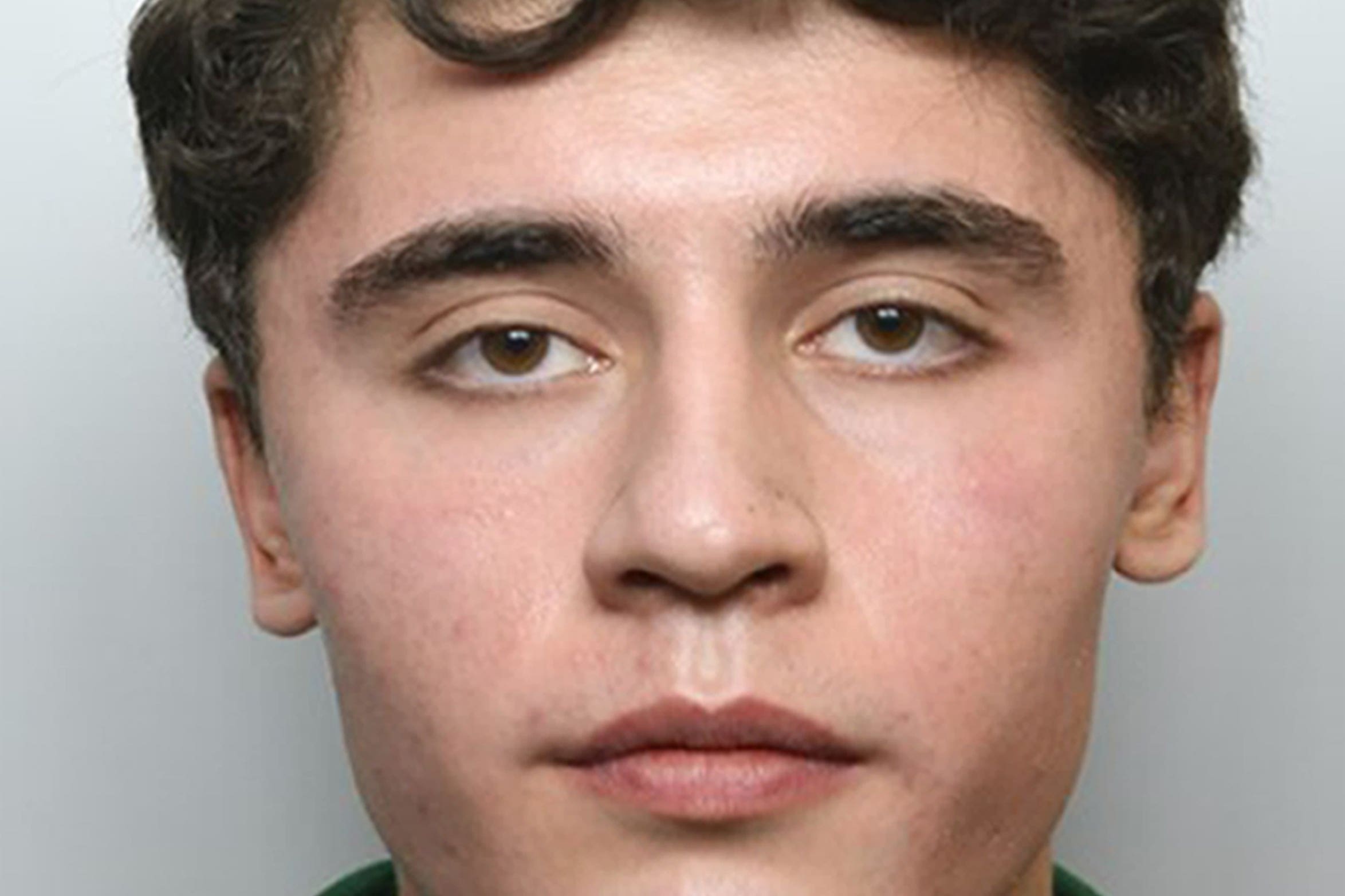
On Thursday, after 23 hours of deliberation, a jury at Woolwich Crown Court convicted Khalife of breaching the Official Secrets Act and the Terrorism Act, but acquitted him on the charge of perpetrating a bomb hoax.
The defendant, wearing a blue shirt and pale trousers, calmly replaced his glasses as the verdicts were read out, and did not show any emotion.
He had pleaded guilty partway through his trial to escaping from HMP Wandsworth in southwest London in September 2023 by clinging to the underside of a food delivery truck using a sling made from kitchen trousers.

Khalife’s trial heard he had created and passed on fake documents supposedly from MPs, senior military officials and the security services but also sent genuine army documents – and was paid in cash for the secret information gathered.
Daniel Khalife, 23, was serving in the British Army when he “exposed military personnel to serious harm” by collecting sensitive information and passing it to agents of the Middle Eastern country.
Having reached out to a “middle man” by sending him a Facebook message, Khalife told the Iranians he would stay undercover in the British army for “25-plus years” for them, having joined in 2018 two weeks before his 17th birthday.

In 2021, Khalife secretly gathered the names of serving soldiers, including those in the Special Forces. He took a photo of a handwritten list of 15 of them, having been sent an internal spreadsheet of promotions in June 2021. Prosecutors believe he sent the list to Iran before deleting any evidence.
After his arrest, he told police he had wanted to offer himself to UK security agencies all along, having emailed MI6 as early as 2019.
Khalife told jurors he wanted to prove bosses wrong after being told his Iranian heritage could stop him from working in military intelligence, and came up with his elaborate double agent plot after watching the TV spy thriller Homeland.
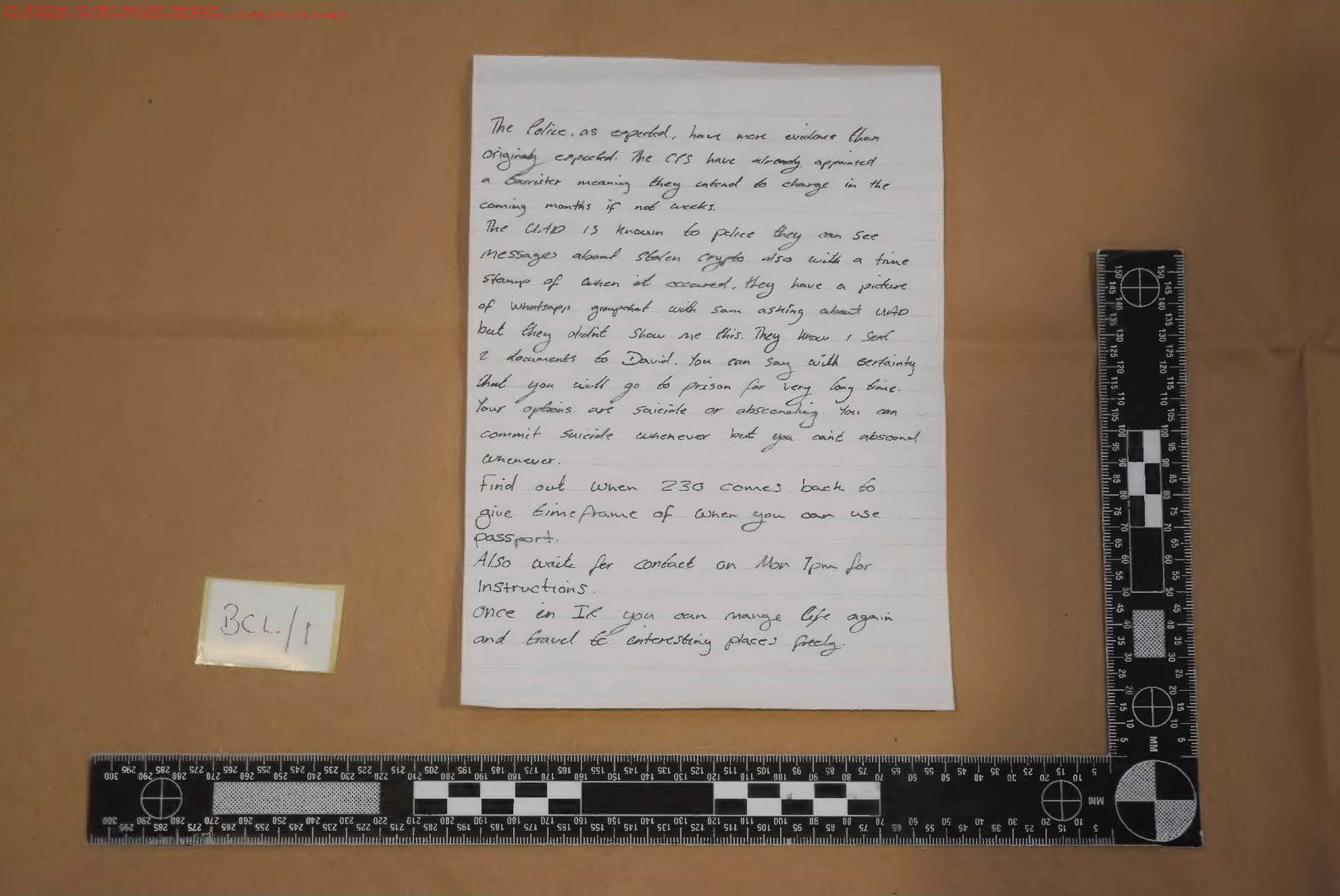
In November 2021, he made an anonymous call to the MI5 public reporting line, confessing to being in contact with Iran for more than two years. He offered to help the British security services, and said he wanted to return to his normal life.
If Khalife had not contacted MI5 to tell them about his contact with Iran, neither they nor the police would ever have known, his barrister told the court.
However, Gul Nawaz Hussain KC said Khalife’s double agent plot was still “hapless” and “sometimes bordering on the slapstick”, more “Scooby-Doo” than James Bond or Homeland.

Prosecutors also alleged Khalife had prepared a bomb hoax at his Staffordshire barracks in January 2023. But the trial heard how a soldier who arrived in the room pulled wires out of the device to prove it was not real. A bomb disposal unit was only called after police attended and looked at the device several days later, the court was told.
The former soldier pleaded guilty earlier this month to escaping from the category B prison HMP Wandsworth.
While on the run, he bought clothes from Marks & Spencer and a coffee from McDonald’s, while he stole a hat from a Mountain Warehouse store. He walked along the River Thames and started using a bicycle he found before being caught by police three days later.
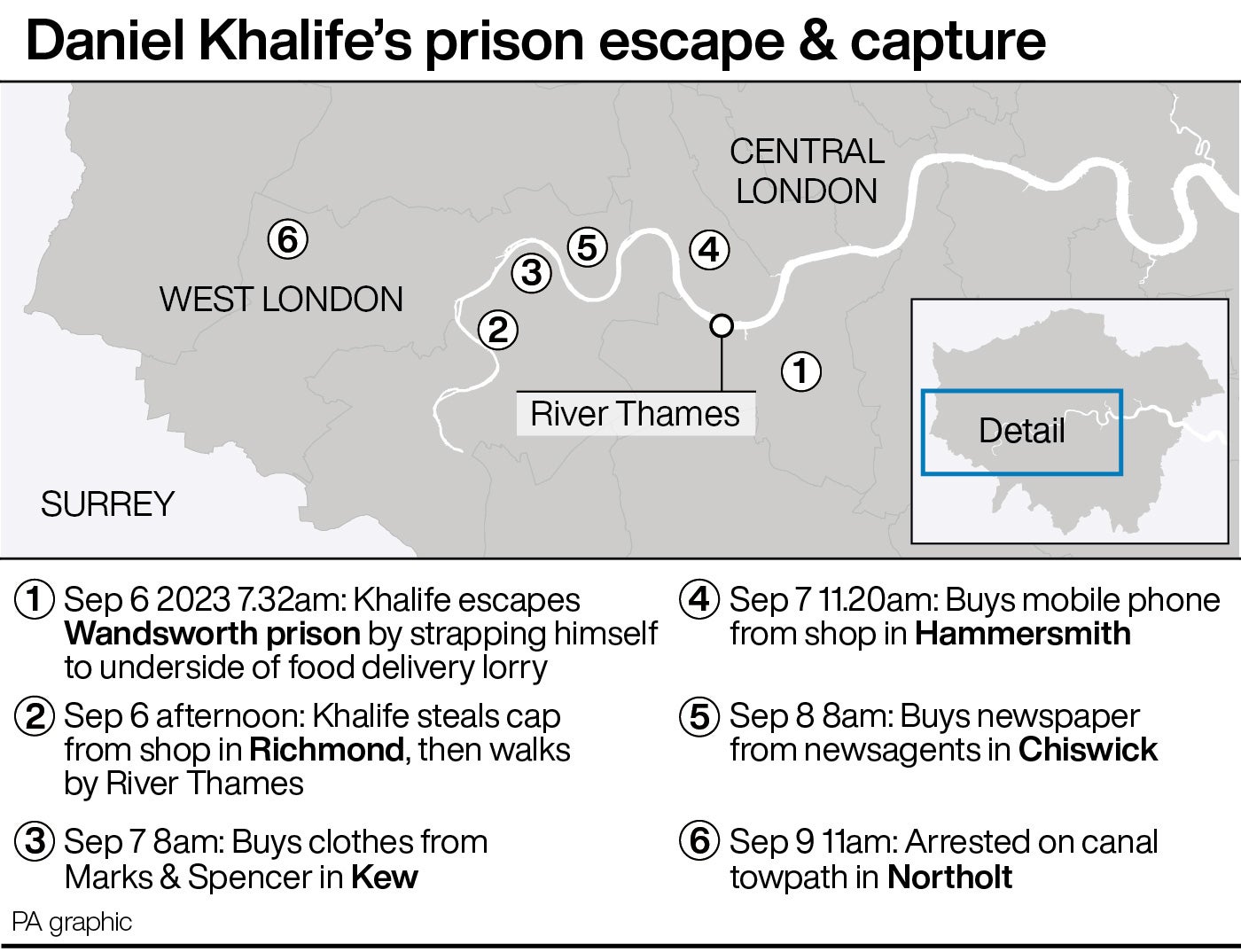
The officer who captured Khalife, on a canal towpath in west London on 9 September 2023, described the prisoner as “jovial” and told jurors he “congratulated me on catching him”.
Khalife made one last attempt to contact the Iranians before he was found, sending a Telegram message that said simply: “I wait.”
Concern that he would try a similar stunt during his trial was so high that when he gave evidence, he was brought to and from the witness box in handcuffs.
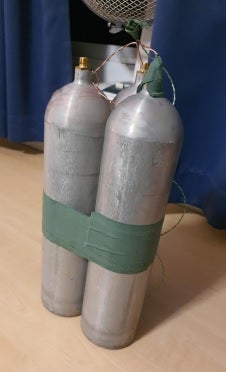
Khalife told his trial that the reason he escaped was that he hoped he would be kept in a high-security unit (HSU) at a different prison, HMP Belmarsh, away from “sex offenders” and “terrorists”, after his recapture.
Khalife’s jailbreak shone a light on the “shocking” level of chaos at HMP Wandsworth, with the prisons watchdog describing it as “symbolic of the problems that characterise what is worst about the English prison system”.
Dominic Murphy, head of the Metropolitan Police’s Counter Terrorism Command, said of Khalife’s crimes: “Ego is a factor – I’ve got no doubt he’s got an uncanny ability to manipulate others. I think he probably enjoyed the thrill of deception throughout.”
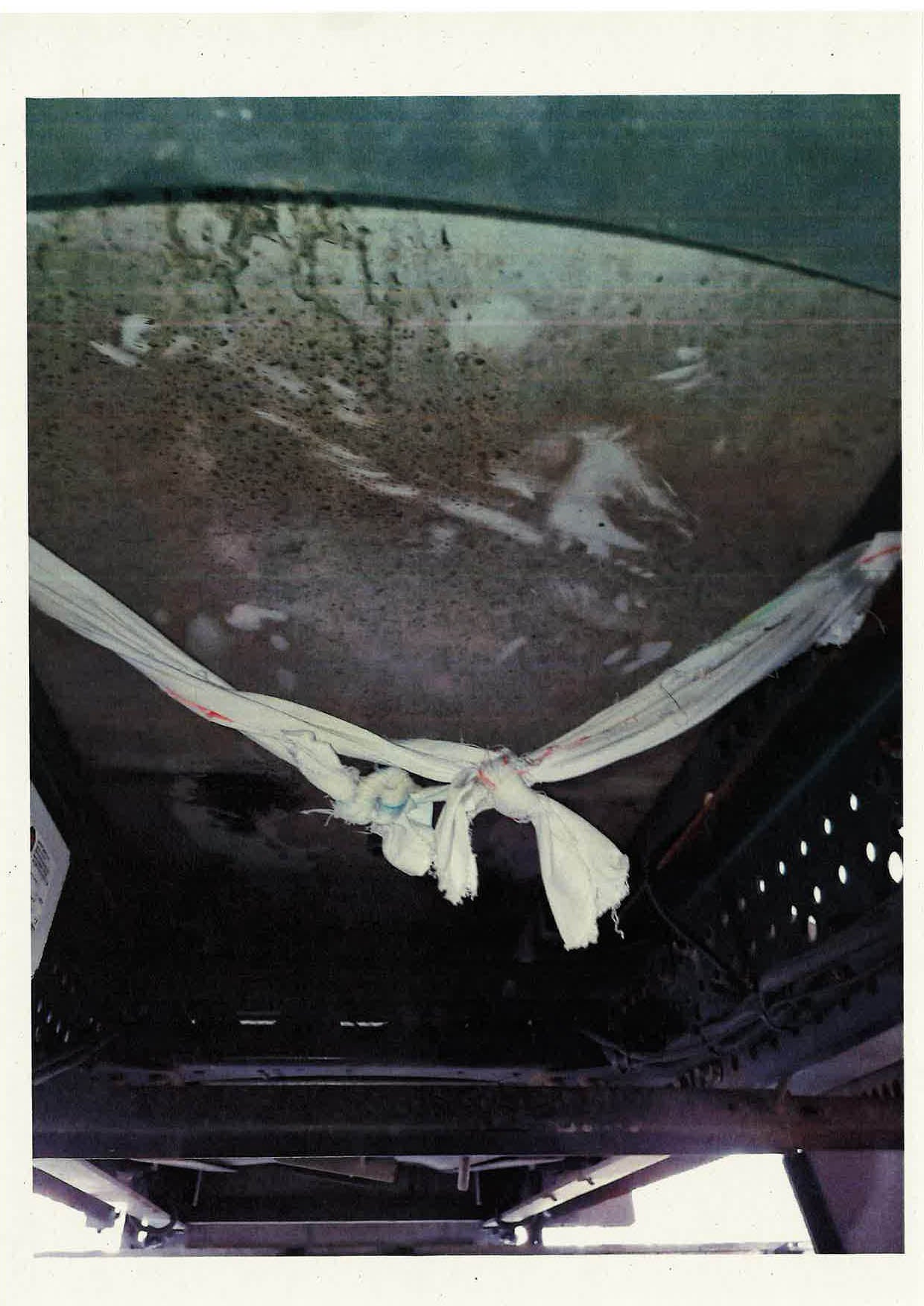
Khalife’s actions could have put the lives of military personnel at risk and “prejudiced” the UK’s national security, the Crown Prosecution Service (CPS) said.
Bethan David, from the CPS, said: “As a serving soldier of the British army, Daniel Khalife was employed and entrusted to uphold and protect the national security of this country. But, for purposes of his own, Daniel Khalife used his employment to undermine national security.
“It is against the law to collate and share secret and sensitive information for a purpose against the interests of the United Kingdom. Such hostile and illegal activities jeopardise the national security of the United Kingdom, and the CPS will always seek to prosecute anyone that carries out counter-state threats.”
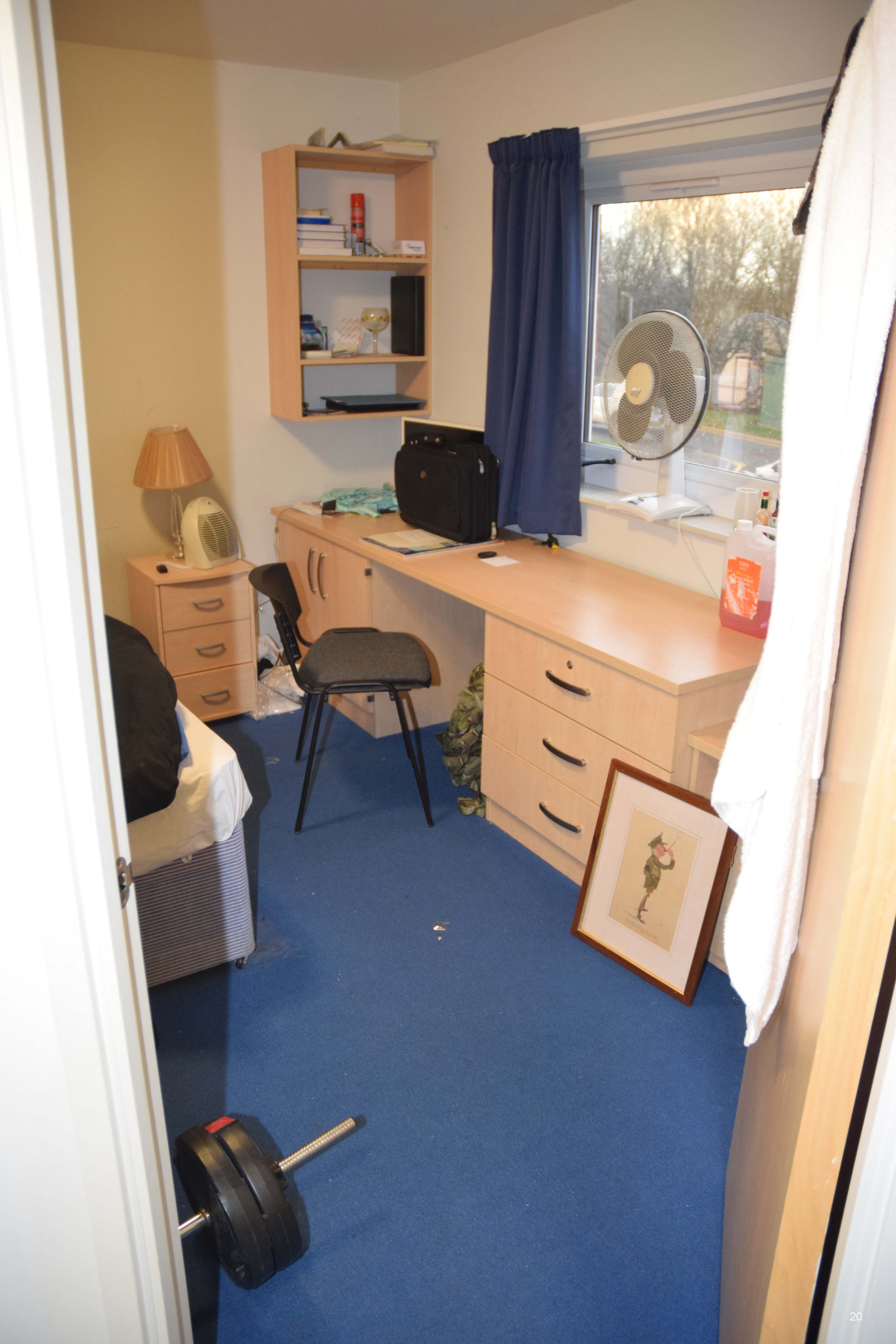
Prime Minister Sir Keir Starmer welcomed the verdict, Downing Street said.
Asked whether he was concerned Iran had managed to recruit a British soldier, an official spokesman added: “We’ve always been very clear that the behaviour of the Iranian regime poses a threat to the safety and security of the UK and our allies.
“This was an isolated incident but we take these incidents extremely seriously and, more broadly, it is why we continue to take strong action and hold the Iranian regime to account.”
The former soldier will be sentenced early next year and faces a lengthy prison sentence.







